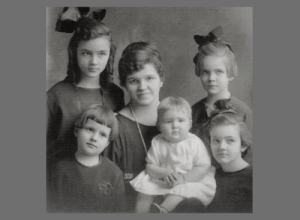
To me, St. Patrick’s Day not only serves as a celebration of my Irish heritage but as a reminder that we should all be mindful of our potential genetic predispositions. For me, that means BRCA 2. My maternal grandmother, Catherine Wiley, was the youngest of five daughters. She lived a very long and fulfilled life, but her sisters didn’t have the same luxury.
High rates of breast cancer in my family led me to believe there was more to my family’s story than a string of bad luck. In my quest for understanding, I came to find that researchers are studying genetic predisposition to breast cancer in Irish women specifically. Dr. Love mentions the “Irish Gene” as she calls it, as one of the many newly discovered markers for breast cancer. The BRCA gene test is a blood test that uses DNA analysis to identify harmful changes (mutations) in either one of the two breast cancer susceptibility genes — BRCA1 and BRCA2.
People who inherit mutations in these genes are at an increased risk of developing breast cancer compared with the general population.
The BRCA gene test is offered to those who are likely to have an inherited mutation based on personal or family history of breast cancer. The BRCA gene test isn’t routinely performed on people at average risk.
The results of genetic testing aren’t always clear. A positive result means you carry a gene mutation that increases your risk of cancer and you can work with your doctor to manage that risk. A negative result may mean that you don’t have the mutation or that you might have a gene mutation doctors haven’t discovered yet. Your test might also identify a gene variant that doctors aren’t certain about. In these situations, it’s not always clear what the results mean for your cancer risk.
Research is what drives me, Dr. Love and our friends and supporters. Ending breast cancer will take innovative research, like what we do here at the Foundation. Here are two studies that highlight the Irish BRCA 2 gene:
- Familial breast cancer genetic testing in the West of Ireland
- Two different BRCA2 mutations found in a multigenerational family with a history of breast, prostate, and lung cancers
